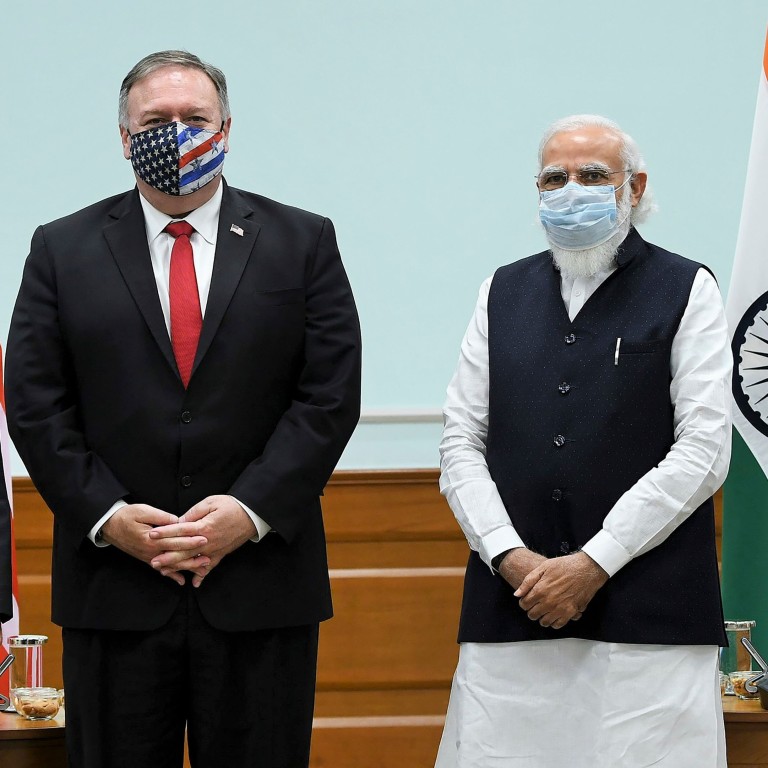
‘Stay out of our regional border dispute,’ China tells Americans Pompeo and Esper during their visit to India
- Beijing says China and India have ‘the wisdom and ability to resolve our differences and don’t need the intervention from any third party’
- Comments come after US secretaries of state and defence voice commitment to New Delhi while attending India-US 2+2 Ministerial Dialogue
The Chinese embassy in India issued a statement on Wednesday urging the United States to stop hyping up the “China threat” and sowing discord between the world’s two most populous nations.
“The repeated lies of people like US Secretary of State [Mike] Pompeo, and their attacks and criticism against China … sow discord between China and regional countries, and has once again proven its cold war mentality and ideological bias. The Chinese side expresses its resolute opposition to that.”
The embassy was responding to comments made by Pompeo during his trip to India this week along with US Defence Secretary Mark Esper at the India-US “2+2 Ministerial Dialogue” at a time the US has been ratcheting up pressure on China on multiple fronts before the US election next week.
In a speech on Tuesday Pompeo said the US “stands with India to deal with any threat”.
“The US will stand with India in its efforts to defend its sovereignty and its liberty … Our nations are committed to working together into expanding our partnerships across many fronts,” he said.
“Our leaders and our citizens see with increasing clarity that the Chinese Communist Party is no friend to democracy, the rule of law, transparency nor the freedom of navigation, the foundation of a free and open and prosperous Indo-Pacific.
“I’m glad to say India and the US are taking all steps to strengthen cooperation against all threats and not just those posed by the CCP,” he said.
China-India tensions hit ‘Silk Road’ border businesses
Indian media has quoted unidentified officials as saying that the conflict in Ladakh was discussed during a meeting between Pompeo, Esper and India’s National Security Advisor Ajit Doval.
After a visit to Delhi’s National War Memorial Pompeo said: “We paid our respect to the soldiers who laid down their lives in the Galwan Valley recently.”
China-India border dispute: its origins and impact
But the Chinese embassy called on the US not to interfere in the conflict with India and said Washington’s Indo-Pacific strategy was only aimed at containing China.
“The Indo-Pacific strategy proposed by the US is advocating the confrontation of blocs and geopolitical rivalry, preserving the leading status of the US and creating a closed ideological ‘small circle’ to exclude others,” it said.
“The China-India border question is an issue between China and India. Both sides have maintained communication – through diplomatic and military channels regarding disengagement at the border and lowering tensions.
“China and India have the wisdom and ability to resolve our differences and don’t need the intervention from any third party.”

